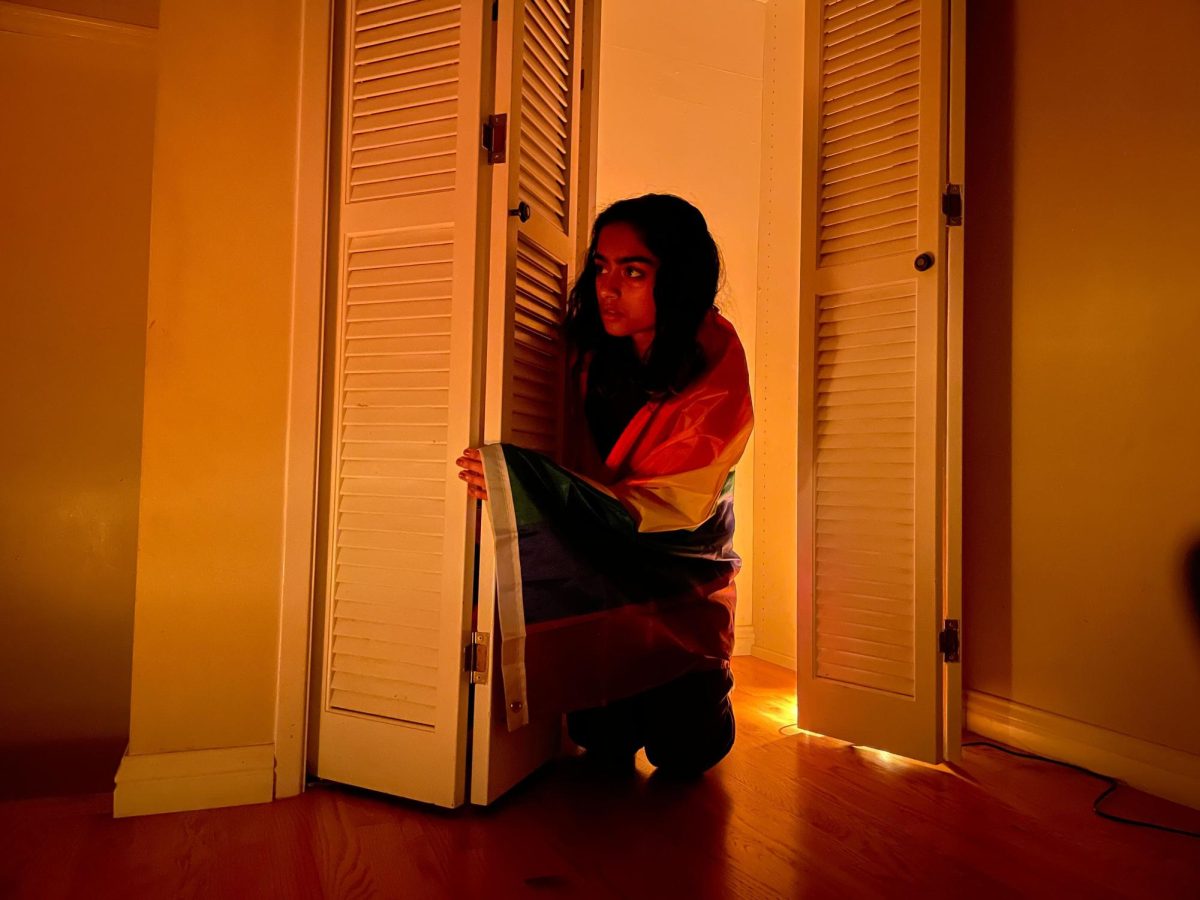From the initial “Hey, I need to tell you something,” to the eternity of watching the three dots appear as my best friend typed back, I anxiously waited, because I was going to come out to her. The realization that I liked girls was not one that upturned the world as I knew it, and being queer was just another meaningful part of my identity, but perhaps it was the sheer awkwardness of the whole situation that made me feel apprehensive. I found myself feeling more uncomfortable than relieved or proud when I came out to her. Nearly six months after coming to the realization that I was queer, my friend was the first person I came out to, and my nervousness ran high both during and after the exchange. Even after my friend had texted back a supportive response, I dreaded the awkwardness and was hesitant to go through the exchange again.
In the next few months, I gradually came out to my small friend group and a few family members. Eventually, I was asked the question, “Are you out yet?” and I did not know how to respond. On the one hand, I wanted to come out to a few people I was close to, but did not want to explicitly come out to everyone else — I was fine with telling people if they asked, but did not want to make it a point to come out to them.
For a while, I was conflicted: coming out had seemed like a crucial part of my identity as a queer person, and the people I had not come out to asked me if “I liked a guy” and made other assumptions about my sexuality. I felt compelled to place a label on myself by coming out, but at the same time I found it incredibly awkward and anxiety-inducing and I did not want to go through it again. 
I eventually decided not to come out to anyone for my mental health, instead making the so-called closet “comfortable” for myself — I found peace in my decision rather than feeling trapped in the closet. I was lucky enough to be able to choose to not come out — many queer people cannot come out even if they want to. Queer people may experience hostility and a lack of acceptance from peers, and LGBTQ+ youth risk losing financial support from their parents after coming out. Furthermore, coming out is a major emotional event that can bring about feelings of stress and anxiety, and its difficulty only puts more strain on queer individuals’ mental health. Having to come out multiple times to many different people and risking negative reactions each time puts an enormous mental and emotional strain on LGBTQ+ people.
The expectation for queer people to come out also reinforces heteronormative and cisnormative societal standards. It perpetuates the myth that being straight and cisgender is the norm, and encourages people to assume that others are straight and cisgender until told otherwise.
Over time, I have come to the realization that I, and other queer people, should ultimately have the autonomy to decide if and who we come out to. Coming out is not a “one size fits all” experience, and coming out to one person does not mean we need to come out to everyone. “Just not wanting to” is a perfectly valid reason to stay in the closet because it can be awkward, hard and unsafe to do so, and it is fine to not want to come out.
 Today, my views of coming out have changed, and I am less hesitant to come out to new people. A huge part of this newfound comfort is due to knowing that I had surrounded myself with supportive friends. While I do not know if I will ever completely overcome the awkwardness I feel when coming out to people, I am, and have always been, comforted by the fact that the people I have surrounded myself with vocally support the queer community.
Today, my views of coming out have changed, and I am less hesitant to come out to new people. A huge part of this newfound comfort is due to knowing that I had surrounded myself with supportive friends. While I do not know if I will ever completely overcome the awkwardness I feel when coming out to people, I am, and have always been, comforted by the fact that the people I have surrounded myself with vocally support the queer community.
Ultimately, everyone needs to be aware of their language and the assumptions they make about people in order to create a safer space for both out and closeted LGBTQ+ people. We can do this by using gender-neutral language, such as “partner” instead of “boyfriend” or “girlfriend,” and avoiding the use of gendered phrases like “ladies and gentlemen” when addressing a group. We should not reinforce heteronormative and cisnormative standards by assuming someone’s gender or sexuality — instead, we need to ask for pronouns and share our own. Everyone has a responsibility to help create a safer environment for queer people. Openly being supportive of the queer community and establishing yourself as an ally can even help take some of the pressure off of queer people to come out, if they choose to.










